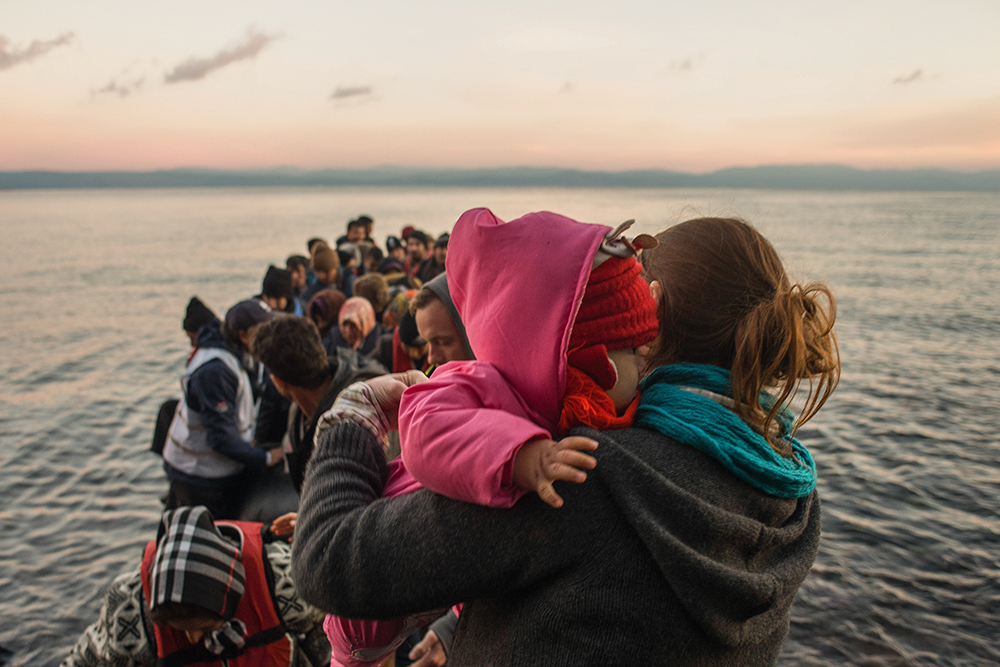The current refugee crisis represents a man-made disaster, the result of ongoing internal conflicts, especially in Afghanistan, Syria, and South Sudan. More than half of the 22.5 million refugees hail from one of these three countries. Since only a fraction (189,000) are resettled, the need is significant. Here’s how you can help:
1. Support nonprofits providing urgent, humanitarian aid.

Examples include:
- Médecins Sans Frontières (Doctors Without Borders) provides emergency medical treatment to victims of disaster around the globe, including in Syria, South Sudan, and Afghanistan, among other countries.
- The International Rescue Committee provides emergency supplies and medical care, education for children, skill training for employment, and resettlement support.
- Save the Children provides food and medicine, helps maintain schools, repairs water systems, distributes hygiene kits, and offers safe spaces for children.
- UNICEF-USA delivers immunizations, clean water, food, education, physical protection, and clothing to children.
- Mercy Corps provides food, water, sanitation, hygiene, and shelter, as well as playgrounds, sports fields, and psychosocial support to help kids deal with trauma.
- World Food Programme provides food for approximately four million people monthly within Syria and cash for food for refugees in Turkey, Lebanon, Egypt, Jordan, and Iraq.
- The White Helmets (Syria Civil Defence) are 2,900 volunteers providing search, rescue, and medical services—often risking their own lives in the process.
- UN Refugee Agency (UNHCR) tracks data regarding the refugee situation; delivers rescue kits (thermal blanket, towel, water, food, and clothing) to survivors arriving at camps; runs reception centers where refugees can register and receive medical care; provides emergency shelter; and provides specialist support to children traveling alone.
2. Support a flexible fund to respond to the situation as it evolves.
For example, the Center for Disaster Philanthropy’s Global Refugee Crisis Fund taps the expertise of both disaster relief and area experts. Its first round of grants to benefit women and children in Syria has already been allocated.
3. Enable increased self-sufficiency and long-term stability.
Governments historically prohibit refugees from working, starting businesses, and supporting themselves. Without the means to rebuild their lives, refugees must then rely on continued humanitarian aid. The following nonprofits are working to change that:
- Asylum Access helps refugees gain legal status and work permits, and works to change legal frameworks in refugee-hosting countries so refugees can meet their own needs.
- The International Refugee Assistance Project provides legal aid to refugees who wish to resettle from their first countries of refuge to the U.S. Continuation of this program depends in part on related decisions in U.S. courts.
- Refugee Rights Turkey, which U.S. donors can support via the U.S.-based Refugee Solidarity Network, provides legal aid to refugees seeking asylum in Turkey.
- Refugees International collects reliable, independent data and provides expert information about refugee needs.
4. Support refugee resettlement.
Refugees admitted to the U.S. go through a vetting process that includes in-person interviews, fingerprinting, health screenings and background checks by various U.S. agencies, including Homeland Security. This process can take up to two years. Donors interested in helping refugees who have been able to gain access to the United States can find a list of agencies via the Office of Refugee Resettlement.
Note: We have removed Oxfam International from this list pending investigations into allegations of staff misconduct and misuse of funds in Haiti after the 2010 earthquake.
